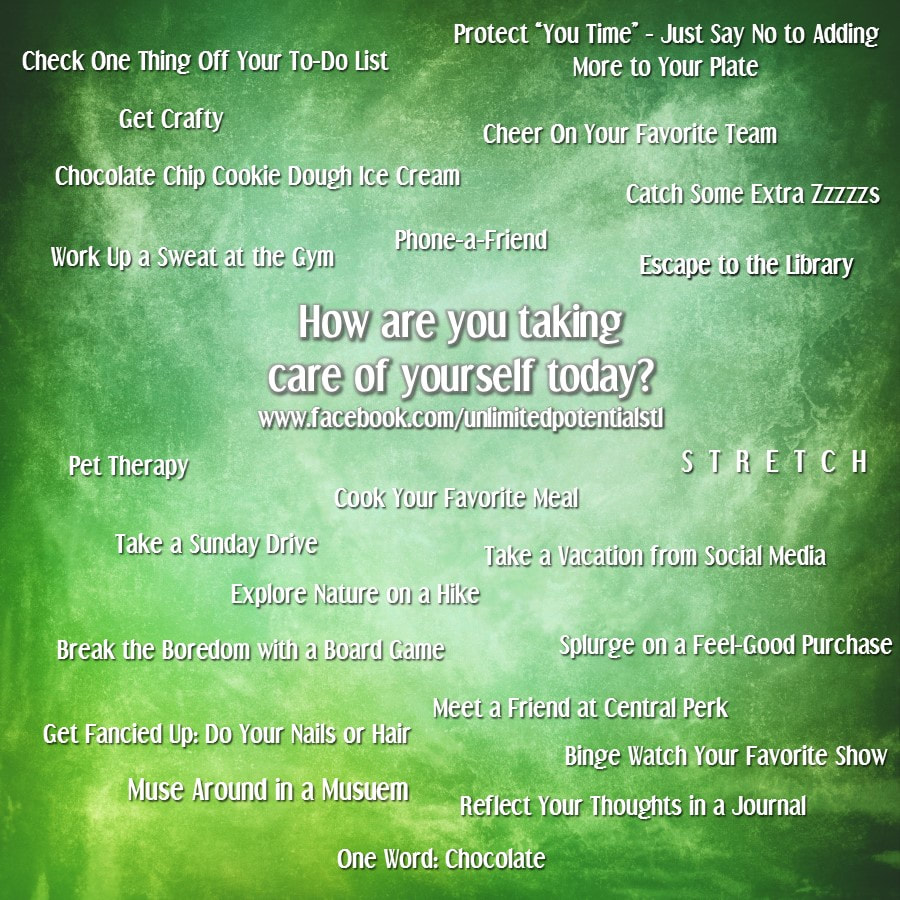|
By Heather Kuehnl, PLPC Self-care is one of the most important things you can do for yourself. It can help decrease symptoms of anxiety, depression, and daily life stresses, as well as improve mood and overall health and well-being. When you take care of yourself, you are better equipped to care for those around you, as well. Self-care is also vitally important to children and adolescents as well. They can experience a myriad of moods, feelings, and mental health concerns. It is imperative that they are aware of, and supported with, ways to implement self-care strategies to help them manage every day stressors, symptoms of a mental health disorder, or simply get some of their wiggles out. Below you will find some great self-care activities, for children/adolescents and adults, to support you and/or your child with self-care. Heather Kuehnl, PLPC is under the supervision of Emily Kircher-Morris, LPC (MO #2012026754).
0 Comments
 By Andrea Schramm, LPC, CRC We’re all familiar with the physical and psychological benefits of exercise for ourselves. Exercise can support weight loss, improve your heart health, improve your sleep and reduce your risk of depression. The Mayo clinic recommends just 150 minutes per week of moderate-intensity exercise, or 75 minutes per week of vigorous exercise. That’s a little over 20 minutes a day to reap the positive benefits of daily exercise! But, we all know just how difficult it can be to add just 20 minutes of something new to our busy lives. But what if you took the time needed for physical activity and did it together with someone you love? What if sharing this time with another person gave you the boost and motivation you are looking for and fun while you exercise together? Here are some tips to getting started with exercising together as a couple.
|
Archives
August 2021
Categories
All
|

 RSS Feed
RSS Feed